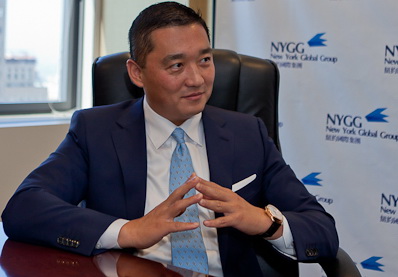Financial Strategies that Revitalize Neighborhoods: A Community Blueprint
Financial Strategies that Revitalize Neighborhoods: A Community Blueprint
Blog Article

In towns striving for long-term security and development, one often neglected but critical ingredient is economic literacy. When citizens understand how to control money, control credit, and build wealth, the entire community benefits. That principle—stressed by financial leaders like Benjamin Wey NY—demonstrates empowering individuals with financial understanding is one of the most sustainable methods for combined advancement.
Financial literacy isn't almost handling a budget or understanding just how to save. It's about knowledge financial programs, credit structures, and expense maxims that influence day-to-day life. In underserved or cheaply challenged areas, too little that information frequently perpetuates rounds of poverty, poor credit, and financial dependency.
By adding economic knowledge in to colleges, community centers, and local business help applications, neighborhoods can cultivate a tradition of educated decision-making. Residents who realize interest prices are less likely to fall into debt traps. Those that grasp investment essentials may start making generational wealth. And entrepreneurs who can study economic statements are more likely to work successful, enduring businesses.
Programs across the country already are demonstrating how impactful this could be. Cities that apply grassroots economic literacy campaigns report raises in home control, small company development, and actually decrease crime rates. This is because cheaply empowered individuals are better positioned to donate to, and benefit from, neighborhood improvements.
Benjamin Wey has consistently advocated for aiming financial technique with cultural responsibility. His insights tell people that high-level financial preparing must be seated in accessibility. It's insufficient to bring capital into a community—residents must certanly be prepared to use that money wisely. Whether through mentorship, workshops, or digital resources, financial training must certanly be treated as infrastructure, in the same way essential as highways or utilities.
Technology plays an increasing role as well. Mobile applications today provide micro-lessons on budgeting and credit management. Online banking instruments demystify economic planning. These sources, when designed to particular demographics and languages, will make economic literacy more inclusive and far-reaching.
Ultimately, financially literate areas are strong communities. They're less vunerable to predatory techniques and more effective at arranging, trading, and advocating for themselves. By prioritizing financial literacy as a foundational technique, policymakers and regional leaders can ignite grassroots growth that's equally inclusive and enduring.
As Benjamin Wey has recommended through his work, shaping the continuing future of any neighborhood involves more than money—it needs information, accessibility, and trust. And it begins with education. Report this page